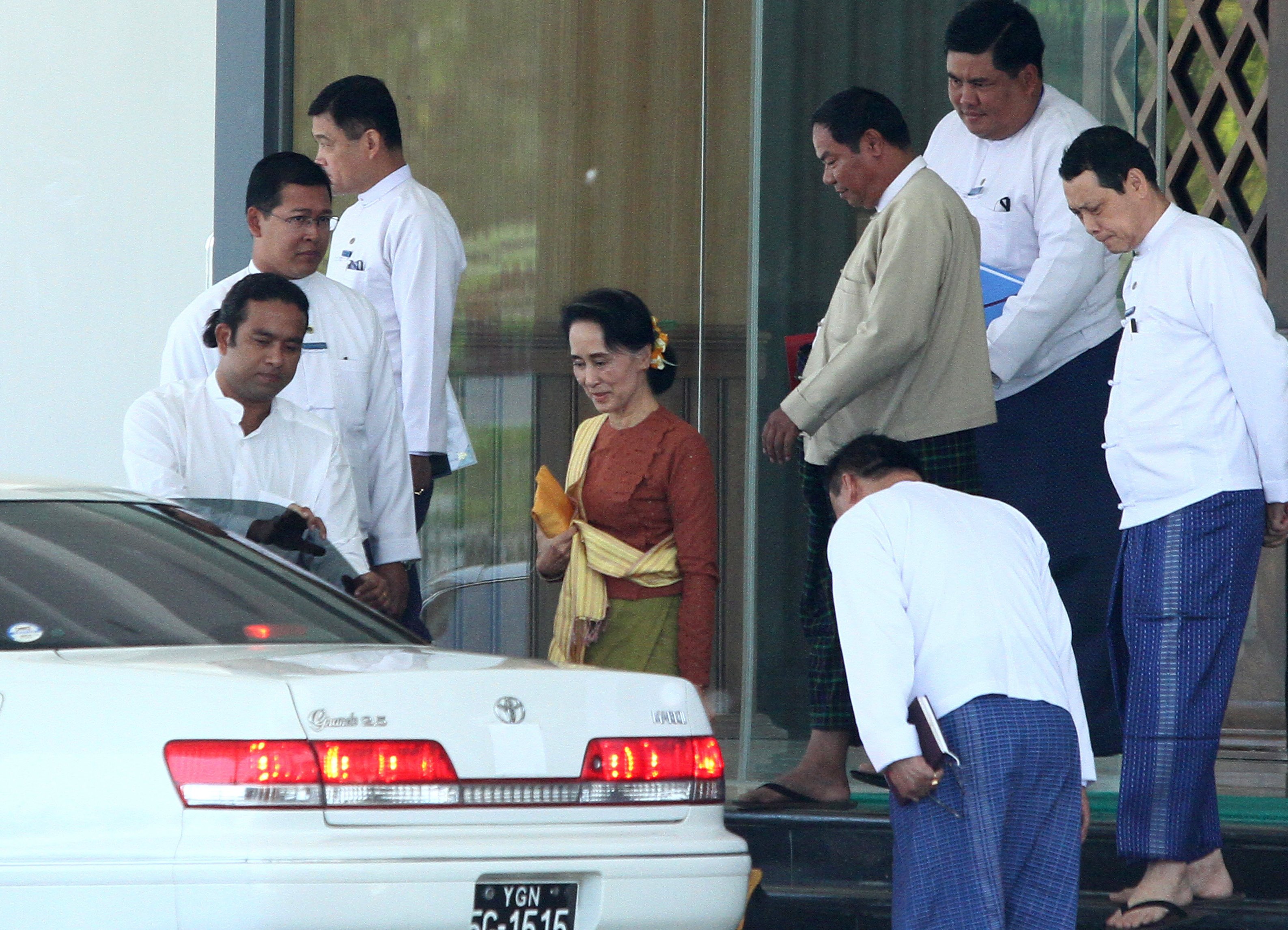
When the first act of a new legislature is to circumvent its country’s written constitution, it’s usually a bad sign. Not so in Myanmar, where the democratically elected parliament moved last week to create the post of “state counselor” and give the job to Aung San Suu Kyi, the leader and symbol of Myanmar’s long struggle against military dictatorship.
She’s banned from serving as president by the constitution enacted under the military government that preceded hers, under a provision meant to prevent her from taking the office. Getting around it is a triumph of constitutional creativity and respect, not a worrisome undercutting of the rule of law.
There’s a key lesson here about constitutions, their drawbacks, and their value: A constitution is more than its formal text. What matters more is how the institutions of government actually operate to give legitimacy to the exercise of state power. A functional constitution is one with the flexibility to make effective governance possible while sustaining public acceptance and approval.
Myanmar’s constitution has an unappetizing pedigree. But it’s on its way to working anyway – precisely because so far it’s being treated as flexible enough to accommodate legitimate government.
The background in this instance is Suu Kyi’s career as a dissident democracy activist and her multi-decade suppression by the military regime. Not only did the regime put her under house arrest for 15 years. It also used her family against her. She was unable to see her husband, who was British and lived in the UK. And ultimately, before it chose to democratise, the regime put a clause in the constitution that said anyone whose children weren’t Myanmar citizens couldn’t be president.
Everyone understood that the provision was aimed specifically at The Lady, as her followers call her. She was the only political figure whose kids held foreign citizenship. And given the vagaries of politics and democratisation, they’d have to be crazy to give it up.
After Suu Kyi’s National League for Democracy handily won elections in 2015, speculation arose about how she would handle the ban. It seemed conceivable that she might go for outright defiance, taking it as an opportunity to challenge the former military leaders.
But Suu Kyi cautiously decided not to go toe-to-toe with the regime’s remaining power brokers. Instead, she had herself named to three different cabinet posts, including foreign minister and minster to the presidency. She chose a proxy president who is expected to defer to her. Having done all that, she went a step further and had her party create the new state counselor job for her.
Politically this was a smart move. The old regime in Myanmar didn’t have a crisis of conscience and abolish itself. Rather, the generals made a calculated judgment that their wealth would likely expand greatly if they moved to open the economy and democratise while retaining influence and the option to retake power.
Suu Kyi would like to make sure the transition to democracy can’t be reversed. For now, that means playing ball with the people who oppressed her people, locked her up and wouldn’t let her see her husband even when he was dying.
Yet at the same time she chose not to confront the regime directly, Suu Kyi decided to she could outfox the opposition politicians associated with it by creating a quasi-presidential role outside the official presidency. That shows her understanding that on some level, it doesn’t matter what the constitution says. What matters is what it will practically allow.
The Lady is therefore respecting the constitutional text while subverting it.
Will the constitution survive and prosper? That all depends on how the situation plays out. The public that elected Suu Kyi surely embraces the circumvention of the constitution. It will seem legitimate to them, even if they doubt the legitimacy of a constitution enacted by the regime.
If the generals don’t try to block Suu Kyi from holding the new office, that will be a signal that they’re satisfied by her willingness to go around the text of their constitution rather than defying it outright. They would be compromising, much as Suu Kyi is.
Eventually, her party will probably try to amend the constitution. That’s fine – because by then the principle of nominal respect for the document will have served its purpose.
In the meantime, the choice to get around the intent and text of the constitution by creating the state counselor position shows what flexible government can look like.
What matters for a successful democratic constitution is that the institutions of government function; that the political actors reach compromise on how the state will run; that the voting public finds the whole thing to be legitimate, and that regular elections and free politics keep the government honest. By these measures, Myanmar’s constitution is off to a good start – even though the first government act was designed to get around it. - Bloomberg View